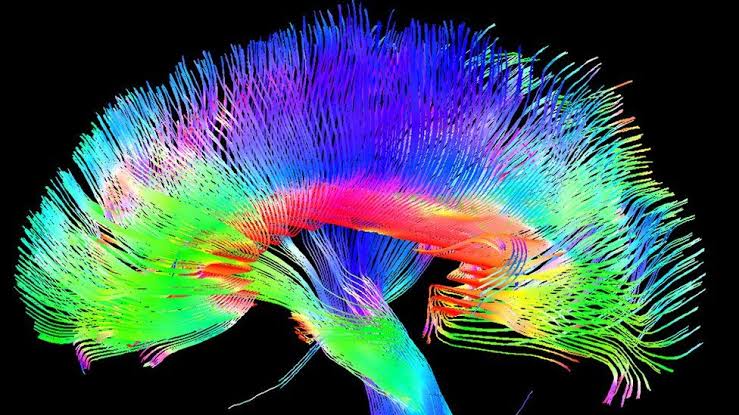Brain Scientist And Philosopher Settle 25-Year Wager On Consciousness
Brain scientist and philosopher settle 25-year wager on consciousness according to a recent report published on Tuesday by Science Alert.
Author:Karan EmeryReviewer:Daniel JamesJun 29, 202341.5K Shares569.3K Views

Brain scientist and philosopher settle 25-year wager on consciousnessaccording to a recent report published on Tuesday by Science Alert. A long-standing wager between German-American computational neuroscientist Christof Koch and Australian philosopher and cognitive scientist David Chalmers regarding the source of consciousness has finally come to a close.
The wager, initiated in 1998, involved Koch making a prediction that the neurological foundations of the brain's subjective experience of the Universe would be comprehended within a span of 25 years. As a stake, Koch put a case of wine on the line.
Both Koch and Chalmers had been participants in a collaborative project organized by the Templeton World Charity Foundation (TWCF), which aimed to foster collaboration among researchers and enhance the testing of consciousness models. The project sought to bring together scientists from different disciplines to explore various approaches and perspectives on understanding consciousness.
The wager itself represented a friendly yet significant challenge between two prominent figures in the fields of neuroscience and philosophy. Koch, known for his work on the neural correlates of consciousness, expressed his belief that advancements in scientific understanding would lead to a comprehensive grasp of the mechanisms underlying conscious experiences.
Chalmers, on the other hand, is renowned for his influential work on the "hard problem of consciousness," which delves into the philosophical aspects of subjective experience and the mind-body relationship. While Chalmers did not offer a specific counter-prediction, his skepticism implied that a complete explanation of consciousness might remain elusive even after 25 years.
Now, with the passage of time, the 25-year mark has been reached, prompting Koch to publicly admit his defeat in the wager. The admission suggests that the neurological intricacies responsible for the subjective nature of human consciousness have not yet been fully unraveled within the predicted timeframe.
During that period, the field of neurology was experiencing remarkable progress in imaging and probing techniques, offering exciting possibilities for mapping and monitoring brain activity with exceptional precision.
"I was very taken by all these techniques," Koch told Nature's Mariana Lenharo, according to Science Alert.
“„I thought: 25 years from now? No problem.- Christof Koch
According to Scientific American, the anecdote goes as follows: Koch engaged in a conversation with Chalmers during a cocktail reception, raising a thought-provoking question: "Why don’t you just say that when you have a brain, the Holy Ghost comes down and makes you conscious?"
Reportedly, Chalmers calmly retorted that the Holy Ghost hypothesis contradicted his own personal subjective experience. This led Koch to further inquire, "But how can I be certain that your subjective experience is the same as mine? How do I even verify your consciousness?"
Undoubtedly, consciousness presented a separate and intricate conundrum, famously dissected by Chalmers into two categories: the "easy problems" and the "hard problems." The easy problems encompassed more tangible and definable aspects, such as the integration of information in cognitive systems or the mechanisms behind attention. On the other hand, the hard problems delved into profound philosophical inquiries, such as understanding how our brain translates electromagnetic wavelengths triggering reactions in our eyes into a coherent and vivid image.
Contrasting Chalmers' perspective, Koch put forward a theory proposing that consciousness arises from a specific region in the posterior cortex known as the "hot zone." Termed Integrated Information Theory (IIT), this framework emphasizes the encoding of objects we perceive as crucial elements of conscious functioning.
In a recent study, when evaluating the competing theories, judges awarded higher scores to IIT. Nevertheless, despite the support garnered, Koch ultimately lost the bet as a definitive answer regarding the nature of consciousness still eludes us.
Conclusion
In a gracious display of sportsmanship, Koch honored his agreement with Chalmers and conceded that there is still much to be uncovered regarding how the brain constructs an entire universe within the confines of our minds.
Jump to

Karan Emery
Author
Karan Emery, an accomplished researcher and leader in health sciences, biotechnology, and pharmaceuticals, brings over two decades of experience to the table. Holding a Ph.D. in Pharmaceutical Sciences from Stanford University, Karan's credentials underscore her authority in the field.
With a track record of groundbreaking research and numerous peer-reviewed publications in prestigious journals, Karan's expertise is widely recognized in the scientific community.
Her writing style is characterized by its clarity and meticulous attention to detail, making complex scientific concepts accessible to a broad audience. Apart from her professional endeavors, Karan enjoys cooking, learning about different cultures and languages, watching documentaries, and visiting historical landmarks.
Committed to advancing knowledge and improving health outcomes, Karan Emery continues to make significant contributions to the fields of health, biotechnology, and pharmaceuticals.

Daniel James
Reviewer
Daniel James is a distinguished gerontologist, author, and professional coach known for his expertise in health and aging.
With degrees from Georgia Tech and UCLA, including a diploma in gerontology from the University of Boston, Daniel brings over 15 years of experience to his work.
His credentials also include a Professional Coaching Certification, enhancing his credibility in personal development and well-being.
In his free time, Daniel is an avid runner and tennis player, passionate about fitness, wellness, and staying active.
His commitment to improving lives through health education and coaching reflects his passion and dedication in both professional and personal endeavors.
Latest Articles
Popular Articles
